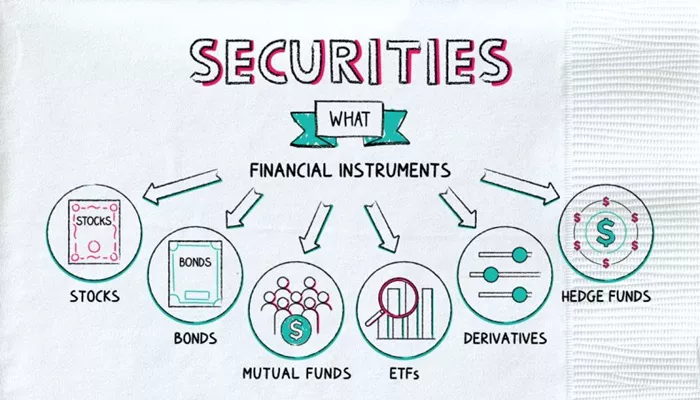Recently, the latest penalty notice released by the local securities regulatory bureau has brought to light two significant “rat – trap account” cases committed by employees of securities firms. Among them, two leading securities firms, CITIC Securities (25.520, -0.18, -0.70%) and Huatai Securities (16.760, -0.03, -0.18%), have been drawn into these affairs.
According to the Anhui Securities Regulatory Bureau, Li Haipeng, who was the senior manager of the Information Technology Center of CITIC Securities at that time, engaged in improper behavior. Over a period of more than three years, he used the securities accounts of his relatives to conduct transactions similar to those of a fund managed by the institution. The fund he targeted might be a product of a private equity tycoon named Deng Xiaofeng, as the establishment time of the fund highly coincides with the information disclosed by the securities regulatory authority. Through these actions, Li Haipeng earned approximately 2.13 million yuan. Eventually, he faced the consequence of “double punishment for each offense”, with a total fine and confiscation amounting to 4.26 million yuan.
The modus operandi of Li Haipeng’s illegal trading was rather sophisticated. In late 2018, he obtained the necessary permissions for the CRM system of CITIC Securities. This allowed him to access all the account information, asset size, and trading positions of all the clients of this brokerage firm. Subsequently, from early November of the following year to late February 2023, he continuously obtained through this system the holdings, orders, and real – time transaction records of Gao’s fund. During this period, he used the securities accounts of his wife Cheng and Cheng’s sister for trading. In total, he used Cheng’s account to trade 128 stocks, with a total transaction amount of 64.838 million yuan. Among these, 76 stocks were traded in line with Gao’s Ruoyuan Fund, with a total transaction amount of 29.0038 million yuan and a profit of 2.1314 million yuan. During the hearing, Li Haipeng tried to defend himself by arguing that in some cases, the transactions occurred under circumstances where the trading time of the same account was earlier than that of the target account within the same trading day. He also claimed that some of the stocks were traded independently and should not be regarded as convergent transactions. However, after a thorough review, the Anhui Securities Regulatory Bureau firmly determined that the available evidence materials were sufficient to prove that Li Haipeng made the relevant trading decisions by taking advantage of the undisclosed information of Gao’s fund and that he engaged in the trading behavior using undisclosed information.
Huatai Securities Employee’s Illegal Trading Case
Another person involved in such illegal activities is Shao, an employee of Huatai Securities. During his 16 – year tenure at this brokerage firm, Shao engaged in illegal stock trading for as long as 14 years. The cumulative purchase amount reached over 300 million yuan, but unfortunately for him, he ended up suffering a loss of over 2 million yuan. What’s more, Shao also misused his position to track the company’s proprietary stock portfolio. He logged into the relevant system nearly 1,000 times within ten months.
The Jilin Securities Regulatory Bureau’s investigation revealed that from July 2008 to July 2024, Shao worked at Huatai Securities. Specifically, from early January 2023 to the first ten days of November of the same year, as the person in charge of overseeing the construction of the investment research system, he was granted access to a certain system of the institution. This access enabled him to obtain real – time information such as the holdings of the proprietary trading accounts and investment proposals that were not publicly disclosed. Taking advantage of his position, Shao logged into the system 984 times within ten months, with an average of 4.66 logins each working day, during which he obtained information such as the names and quantities of stocks held in the company’s own accounts. Then, using these undisclosed information, Shao used the “Yang” securities account to conduct similar transactions with the Huatai Securities proprietary account for 58 stocks. The total amount of similar purchases was 31.5338 million yuan, and the profit was 193,900 yuan.
Regulatory Attention to Securities Industry Misconduct
The misconduct of securities industry professionals engaging in stock trading has long been a key area targeted by regulatory crackdowns. Since the beginning of this year, multiple securities regulatory bureaus in various regions have issued fines to professionals for their violations of stock trading regulations. Just last month, on May 15th, the “National Investor Protection Publicity Day”, the official website of the China Securities Regulatory Commission disclosed the 2024 enforcement situation, which included a thorough investigation into the dereliction of duty by “industry professionals”.
Throughout last year, the China Securities Regulatory Commission (CSRC) investigated 59 cases involving violations of regulations by its staff members. It also launched a special campaign to crack down on securities practitioners’ illegal stock trading. As a result, it imposed administrative penalties on 38 practitioners and took administrative regulatory measures such as issuing warnings and conducting regulatory conversations against 66 practitioners and 7 securities companies. Some senior executives of securities firms have been barred from the market for engaging in illegal stock trading, and some offenders have even been fined and penalized with millions of yuan. For example, the CSRC imposed the largest fine of over 18 million yuan on the illegal trading of stocks by the senior executive Sun of a securities company in one case and also imposed a 5 – year ban from the securities market. It has also severely cracked down on 15 cases of trading based on undisclosed information and imposed a fine of 64 million yuan on the “mouse – trap” behavior of the senior investment manager Liu Liyi of a certain asset management company. These strict regulatory actions demonstrate the determination of the regulatory authorities to maintain the healthy operation of the securities market and protect the legitimate rights and interests of investors.
Related topics:

